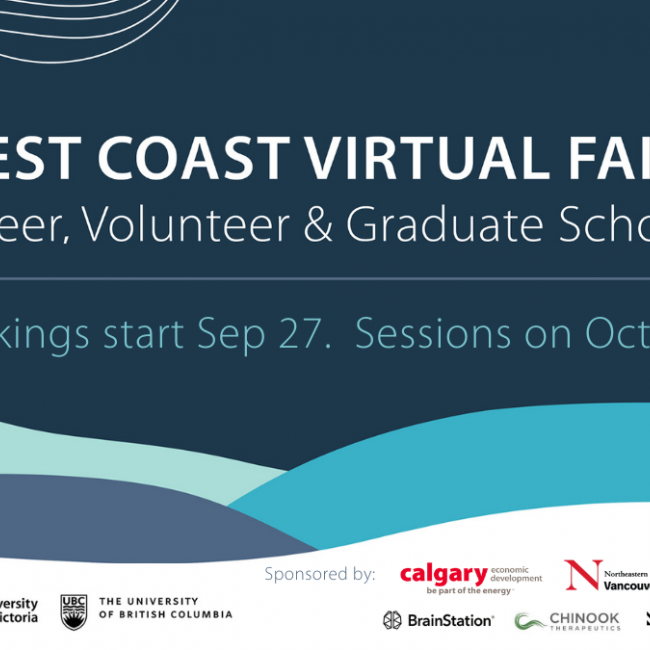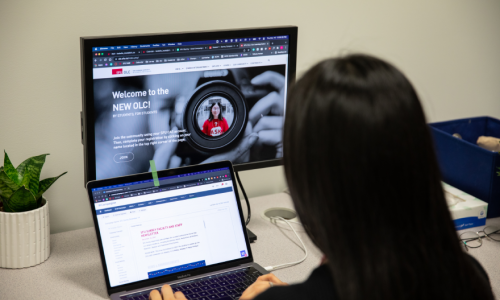
If you are interested in working for the federal government, you may have wondered how you would prepare for an interview at the Government of Canada.
Angela Foraaunet, a Human Resources Advisor in the Public Service Commission of Canada, hosted a webinar for SFU students on October 20th and 21st. In the webinar titled, “Preparing for a Government of Canada Interview," she answered the SFU students’ questions and presented valuable information for the interview success. Let’s take a look at the important points from her webinar.
There are different types of assessments for positions at the federal government. Besides interviews, there are screening (occurs during the application review), computer-based or written tests, in-person or online tests, simulations, role-plays, work samples, and reference checks. There could be individual or group interviews, and the interviews could be either structured or unstructured. Hiring processes include different assessments, so you may work with a few, some, or all of these assessments for your job application. Your interview invitation will list the types of assessments that you will have.
Four Competencies
The assessed qualifications may be different for certain hiring processes. Also, oral communication skills may be assessed during any type of interview. What you should know is that there are four core competencies, which are often assessed in the federal public service. These competencies include:
- Demonstrating integrity and respect
- Thinking things through
- Working effectively with others
- Showing initiative and being action-oriented
Types of Interview Questions
Angela explained in the webinar how there are usually four types of interview questions.
- Behavioural: These questions require candidates to provide specific examples of how they responded to previous situations and/or used skills relevant to the job position.
- Situational: These questions ask candidates how they would respond to a hypothetical situation that is presented.
- Knowledge: These questions test a candidate’s knowledge about a certain topic. They may be related to disciplines (e.g., sciences) that are relevant to the position. They may also test knowledge of specific policies, regulations, or laws.
- Role-play/Simulations: These tasks can be done in many different ways. The purpose of role-plays/simulations is to mimic possible scenarios that could be faced by someone in the position. They may be looking at your ability to deal with clients and solve problems.
When it comes to answering interview questions, Angela recommended using the STARR approach. This acronym stands for situation, task, action, result, and relevance.
You should first explain the "situation." Briefly describe your role in the organization (that you were or have been involved in), and for "task," briefly describe your tasks in the same organization.
Next, explain the most important parts of your STARR answer, which are "action" and "result." Spend enough time to describe the steps you took to complete your tasks (action) and explain your work’s results.
Lastly, demonstrate the "relevance" of your STAR answer to the position you are applying for.
Our country's legislation requires that the federal and provincial governments’ hiring processes are merit-based. Hiring departments may give interview questions to the candidates (immediately before the interview) for the candidates to prepare their responses in their notes, which they may be permitted to use during an interview. During the interview, the interview panel members would usually take notes to ensure a thorough and fair assessment; they may make minimal eye contact with you. You may ask the interview panel to repeat the question, but they will not rephrase the question or give examples, as they need to ensure consistency and fairness. If you are unsure how to respond, you may ask to move on and return to the question later.
You can request accommodation due to disabilities, functional limitations, personal needs (e.g., family situations), and/or religious reasons (e.g., religious holidays). The examples of accommodation measures include changes in settings, response format, scheduling, and presentation format. Check your job advertisement to find who to contact about the accommodation.
You can also choose French or English at any stage of the hiring process—anywhere in Canada.
To wrap up the webinar, Angela provided the following interview tips that can take your interviewing experience to the next level.
- Notice your body language.
- Be honest. The interview panel could ask your referees to verify your experiences.
- As your oral communication may be assessed during an interview, speak normally, concisely, and clearly.
- Provide plenty of context to your own behaviour while focusing on what you did.
- Use “I” statements instead of “we” statements. The interview panel wants to focus on what you did.
- Include background details (e.g., where you were working and what your role was) while explaining your examples.
- Use a variety of examples for each question and be mindful of which competency they are assessing.
- Practice with a trusted and caring friend who will give you accurate feedback.
- Record (audio or video) yourself to check your body language and verbal responses. Practice in front of a mirror.
- Work on your strengths. Be yourself.
Beyond the Blog
Government of Canada Jobs
-
Go to the Government of Canada Jobs website and click on “How to Apply” for additional tips. This online platform shows job opportunities in the Government of Canada. You can also register for job alerts.
-
Learn more about working for the Government of Canada (GC) from the GC employees from their Proudly Serving Canadians page.
Job Opportunity! Census 2021
-
Across the country, Statistics Canada is hiring approximately 1,000 people for entry-level, supervisory, and managerial positions. Take a look at this page often, as the page will regularly have new postings posted from now to the end of 2020.
Job Opportunity! Statistics Canada
-
Statistics Canada will be hiring approximately 32,000 employees for crew leader and census enumerator positions across Canada. As of January 2021, they will be receiving applications.
-
Contact statcan.census-recensement.statcan@canada.ca if you would like to be notified when a new job is posted!
More Resources
-
Still not sure if working in public service is for you? Check out these top 10 reasons to join Canada’s Public Service.
-
Do you have a physical or mental limitation? Learn more about how you can be accommodated during the selection process, job interviews, and assessments.
Student Programs You Should Know About
-
You may have heard of the Co-op program, but did you know that you can complete your work terms with the Canadian government?
-
The Federal Student Work Experience Program (FSWEP) is a great way to get involved in working for the government. There are also focused programs for Indigenous students and students with disabilities that are worth checking out.
-
Did you know that you could work part-time as a Research Affiliate with the Government of Canada while studying? Learn more here about how you can get involved with the Research Affiliate Program.
-
As a new or soon-to-be graduating student, you should take a look at the federal government's Graduate Recruitment Programs to learn about opportunities to work in the federal public service.




















